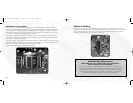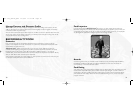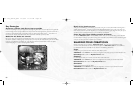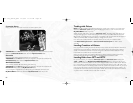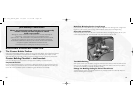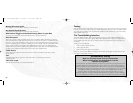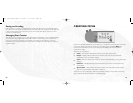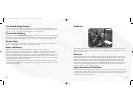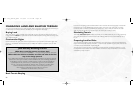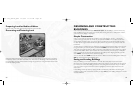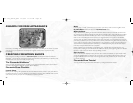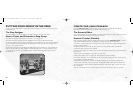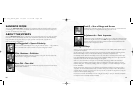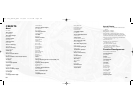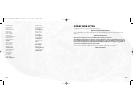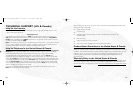
Use the terrain shaping tools described earlier in this manual to alter the topography of the terrain.
Some areas may not be altered if the scenario restricts it. In some cases you’ll want to smooth
terrain for paths or rides, and sometimes you will want to create a body of water for the water
rides you want to add. Or you can even shape the terrain just to suit your fancy.
Simulating Tunnels
Technically, RollerCoaster Tycoon
®
3 does not permit you to build tunnels, but you can dig a trench, lay
your track pieces and then cover the trench with walkway platforms or structural rooftops. It’s up
to you.
Preparing Land for Rides
You can pretty much place a ride nearly anywhere in your park, but the most important element to
keep in mind is the ride entrances and exits — these must be accessible to your paths, which can be
a complex process if the terrain is quite irregular.
The best way to ensure success in connecting your ride entrances and exits to pathways is to use
the Prepare Terrain For Rides tool, which smoothes the land and snaps the elevation to increments
accessible by ramps and stairs.
93
MANAGING LAND AND SHAPING TERRAIN
You can buy land adjacent to your park and even lease construction rights.When you own land, you
can also shape much of the terrain to the limits of your imagination and budget.
Buying Land
After your park is running smoothly and you’ve built up some cash reserves, expand your park by
buying more land.
Note:Your park must own land to build attractions, shops, paths or scenery on it,
or to shape its terrain.
Construction Rights
Some of the land near your park cannot be purchased, but you may lease construction rights.This
grants you an easement over the land so you can build track sections of coasters, trams or other
track rides.
Basic Terrain Shaping
John Wardley: Breaking Ground
What does a new, big coaster cost these days?
A coaster today can cost upwards of $15 million — many are costing more than twice that.
Who makes the decision to build a new ride and what is the first
step in the design process?
It is a collaboration between the park and the designers. Sometimes manufacturers lead the
process with a new type of coaster product. Sometimes the park’s marketing people lead
by identifying a need to entertain a specific segment of their market. Occasionally, the
physical layout of the park throws up a need to fill a gap in the park’s developed
area (i.e. a vacant lot). Frequently, the designers have an idea for a storyline within
a themed development that needs a coaster as the transit system to take
riders through an adventure. But more often than not, it is a
combination of all these factors, and some!
92
RCT 3 PC_ManInt_REV 12/3/04 11:12 AM Page 92



